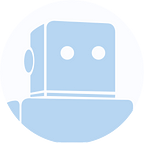Wit.ai Raises $3M Seed Round Led by Andreessen Horowitz
On May 1st 2000 I met a woman who would change my life — Cybelle.
Cybelle was a chatterbot.The magic of having a conversation with a computer convinced me that this was the future. Cybelle knew a few cool tricks, but she was far from being usable in the real world. I wanted to change that. A few hacker friends and I started to code and in 2002 I started a company with Laurent Landowski and Callixte Cauchois around natural language, VirtuOz.
By 2012 VirtuOz was the market leader for customer service conversational agents (think ‘Siri for the enterprise’) and was acquired by Nuance Communications. Our company had grown to 70 employees and moved to San Francisco. The experience of building the ‘Siri’ for customers of big companies like AT&T, eBay, H&R Block, AOL, gave us a first-hand look at just how difficult and tedious a task speech and natural language truly were. Each natural language interface we created took 3 to 6 months to build and involved direction not only from our development team but also linguists and knowledge management experts. And because of the extremely high cost of setup, there was no solution tailored to smaller businesses or developers. No vendor was getting natural language user interfaces widely adopted, including us.
Despite our enterprise success we still fell short by Cybelle standards. Adding feature after feature to an ever-complex speech toolset, or creating the next big algorithm was not really what we wanted to do. Natural language is hard.The solution is not found in a centralized, managed, closed approach, but an open, distributed, community-based network of developers. We had to build the Github, the Wikipedia, the Bitcoin of natural language.
Last year I started Wit.ai to make this a reality. On September 12th, 2013 from my Palo Alto garage (sorry for the cliché), Willy Blandin and I shared the very first alpha version of our natural language understanding API on Hacker News. 1100 developers signed up in the first 24 hours and started building apps that take natural language input from users. And more than 99% of the developers agreed to share their training data with the community.
Shortly after, Pebble’s founder Eric Migicovsky kindly offered us to work off Pebble’s offices, and we entered Y Combinator.
The enthusiasm of the developers community confirmed our vision. We want Wit.ai to be the platform that developers use to build messenger-based and audio-first apps that are arriving in the next generation of wearables and smart devices. We have assembled a great team of engineers specialized in natural language processing, machine learning and speech. Jennifer Dewalt, from 180 websites in 180 days, also joined us to lead developer and community efforts.
Today we are very proud to announce we have a wonderful team of investors and have raised a $3M seed round. This investment is led by Chris Dixon at Andreessen Horowitz, with participation from Ignition Partners, NEA, A-Grade, SVAngel, Eric Hahn, Alven Capital, and TenOneTen. What makes us so excited about this group is how they share our vision and support our long term goals.
Wit.ai already powers hundreds of apps, wearable devices and home automation systems, but we have only scratched the surface of the problem. From simple commands, we’ll need to teach machines to understand more complex statements, be aware of the context, handle strong ambiguity, and generate natural, fluid interactions. I doubt we’ll ever see a single, monolithic solution provided by one company alone. Instead, a few startups will solve well-defined pieces of the problem. Natural language applications will be made up of these interlocking pieces.
We’re also excited to announce Listen 2014, the first conference focused on voice interfaces for the internet of things. We invite you to join us on November 6th in San Francisco for a fantastic line-up of industry leaders including Adam Cheyer (founder of Siri and Viv) speaking about the past, present and future of voice interfaces.
We’re a small team working hard to bring voice interfaces to the world. We aren’t getting an uber-fancy office or having Coldplay play at our launch party. As YC Paul Graham said, we’re not here to “play house.” So if you are a developer who has a penchant for natural language or a curious and talented engineer whose core priority is not about paleo snacks, we’d love to talk to you!
Alex Lebrun, cofounder and CEO
